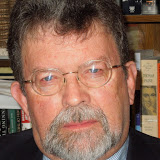Yet, if political considerations led to the unwarranted arrest, conviction and incarceration of Igor Sutyagin, how different are the political considerations that appear to guide the decision by the authors of Spies to smear I.F. Stone posthumously as a spy for the Soviet Union. The authors' case against Stone can be found in the chapter titled "The Journalist Spies."
Like Sutyagin, Stone had no access to classified information. And, like Sutyagin's patriotic outbursts against the United States, Stone was known to uttered harsh words against the Soviet Union. Moreover, as D.D. Guttenplan notes in "Red Harvest," (http://www.thenation.com/doc/20090525/guttenplan/single ) The FBI "opened his mail, tapped his phone, rifled his garbage and subjected him and his family to daily surveillance - without finding a scrap of evidence that Stone was anything other than an unrepentant, and independent, American radical he seemed." [Guttenplan, p. 28]
So, what's the evidence for labeling Stone a "Soviet spy?" Little but the May 1936 claim from the KGB New York station that "Relations with Pancake [Stone] have entered that channel of normal operational work" [Spies, p. 150] and subsequent reports concerning two inconsequential services supposedly supplied by Stone (gossip about William Randolph Hearst and contact with William Dodd, Jr., see Guttenplan, p. 30)
Moreover, Messrs. Haynes, Klehr and Vassiliev undermine even this threadbare evidence when they conclude: "Espionage is a secretive business. It is rare that the agents engaged in it or the agencies they serve speak honestly and openly about what they've done because the incentives to lie, dissemble, and continue to deceive are so strong for all concerned" [p. 541]
More to the point, "Spies never explains why we should believe KGB officers [note the FSB and Sutyagin, above], pushed to justify their existence (and expense accounts), when they claim information comes from an elaborately recruited 'agent' rather than merely a source or a contact." [Guttenplan, p. 27]
Notwithstanding the errors concerning Stone and the reckless use of the word "spy," the book contains many new revelations. New spies are identified and the book devotes nearly twenty pages to demonstrating that Robert Oppenheimer did not assist Soviet espionage. Unfortunately, the new information from Vassiliev's notebooks must be placed in their proper context, which often requires the inclusion of much previously known information that, in turn, often makes the book tedious to read.
Finally, even when one puts aside the mistreatment of I. F. Stone, ignores the indiscriminate use of "spy" and overcomes the tedium of reading so much well-worn information, there's still the critical issue of the harm done to the United States.
The authors, themselves, ask the question: "How much damage did these spies do?" And although their answer shouldn't be dismissed, it is underwhelming: Mainly, they believe that "the scientific and technical data they transmitted to Moscow saved the Soviet Union untold amounts of money and resources by transferring American technology, which enabled it to build an atomic bomb and deploy jet planes, radar, sonar, artillery proximity fuses, and many other military advances long before its own industry, strained by rapid growth and immense wartime damage, could have developed and fielded them independently." [p. 545] In a word, the Soviet Union acquired certain weapons sooner that it normally would have. Yet, such a conclusion raises anew the question of the damage done by "spies" who had no access to weapons technology.
Moreover, I just lived through eight years in which a cabal of right-wing ideologues, led by an evil Vice President, seized political power in the United States and immediately plotted to attack Iraq while ignoring dire warnings about an impending al Qaeda attack. Having enhanced the probability of successful al Qaeda attacks by their Iraq-obsessed lack of preparation, the cabal then proceeded to manipulate the fear and anger aroused by the successful attacks by lying to the American public about Iraq's weapons of mass destruction (mushroom clouds) and ties to al Qaeda -- in order to carry out the invasion they had been planning all along. After the lies came torture and the illegal wiretaps of innocent Americans.
As a consequence, tens of thousands of American soldiers were killed or seriously wounded. Hundreds of thousands of innocent Iraqis were killed and some 5 million were displaced. Billions of taxpayer dollars were wasted, contributing to the great recession of 2008. The cabal's illegal, immoral invasion and decision to authorize torture blackened America's reputation and undermined its security around the world, in part by serving as recruitment tools for jihadists worldwide.
Thus, the treason evidenced in Spies seems like so much small potatoes when compared with the damage caused by the real thing.
(Note: You can view every article as one long page if you sign up as an Advocate Member, or higher).





